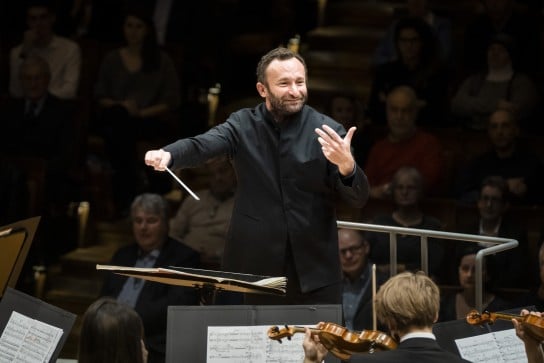Classical label lists the albums no-one buys
mainIn a desperate attempt to drum up business – or an act of ironic self-deprecation, according to your point of view – the Hyperion label has posted a list of the albums that have not sold a single copy for the longest time.
Several have received accolades from reviewers. One is by the Dallas Symphony with star pianist, Stephen Hough.
Won’t anyone buy these records? Go on, make them an offer.






They’ve being doing this for some years now – it’s not new – it would be interesting to know what (if anything) the response was.
Agree. As long as I remember Hyperion has had this section in their website.
It’s interesting because it tells much about the REAL situation in the recording industry.
This isn’t new – they’e being doing this for some years. It would be interesting to know what the response (if any) was.
Very touching in a way.
All are united by not having the best sleeve design so perhaps there’s a lesson to be gleaned from this. Among Hyperion’s more successful examples are ‘The People United Shall Never be Defeated’
I have the album of Norman’s neighbour Norman is advertising above.
It’s a good one. Even worth the £6.03 I forked out for the FLAC download over 4 years ago 🙂
yes, it is just a way of refreshing old titles – you’d actually be surprised just how few classical CDs actually sell after the first couple of years – even Stephen Hough!
yes they’ve been doing it for many years – it’s a way of refreshing titles – you’d be amazed how few classical cds sell after the first couple of years following release – even Stephen Hough’s!!
Well, I have always believed that recordings sell by word of mouth and promotion. Social media has been an invaluable source for artists, fans, friends etc to get the word out. But it is also important to realize that most recordings enjoy a surge when they are released and often slide thereafter. Gentle reminders from time to time, in a positive tone, work best. Saying they don’t sell is not, to me, a good intention to lay faith in the product. Honestly, Stephen is one of the greatest musicians and pianists on the planet, always was and always will be.
I object to the term ‘album’ which stems from pop music. In classical music, the term is: CD. It has always been CD. Only over the last years, commentators seem to fall for the egalitarian notion that a CD is a CD no matter what is on it. We don’t call a symphony orchestra a ‘band’, we don’t call a conductor a ‘leader’ (which is the term for the concert master and which is in a different context). We don’t call an engagement of a classical musician a ‘gig’, as we don’t call a soloist’s biography a ‘blurb’. We know since Karl Kraus that the use of language betrays what we are and what we want.
‘Album’ is for commercial pop music confections.
You must be much younger than I am. In the olden days, we were record collectors–and played record albums–aka LP on the record player. Oh, I do miss that. (But a shameless plug will do–my record album is being released on LP [and CD] mid-July). I always referred to Horowitz records as albums because that’s what they were in the 1960s, occasionally referred to as LPs. But yes, you are correct that classical CDs have been the term used since the 1980s.
‘Band’, ‘Blurb’ ‘Gig’…hate to say this but every orchestral musician I know uses exactly those terms.
I work for an Orchestra and we use pretty much all those terms – gig, band etc. Sorry to disappoint.
The one that bothers me most is when I am told ‘I love that song’–when it is the Appassionata by Beethoven!
No, the term “album” predates pop, unless your definition of “pop” encompasses the likes of the Benny Goodman big band.
It goes back to the days of 78 RPM recordings, and “albums” of multiple platters.
I am not that old, but I have spent some time as of late going through my grandparents’ and great-uncle’s 78 RPM albums.
I agree that it is very important to resist using language as a subtle tool in the campaign to dumb-down and even delegitimize the classical arts. It started a long time ago, perhaps in the ’60’s, when rock events began to be called ‘concerts’.
Album has a long and honorable history in art music and in the music publishing world. Stems from Albumblatt as in Albumblatt in E Major by Liszt, Brahms Albumblatt für Clara Schumann (Brahms, Johannes) and countless other examples; “Album für die Jugend, Op.68” by Schumann. It’s a term used for classical record albums for time immemorial going back to the days of 78s when albums really were albums, i.e. multirecord sets for anything requiring more than eight or nine minutes to play.
I can recommend from the Hyperion list the Elizabeth & Mary disc, which I bought shortly after its initial release. And the Herrick disc of Buxtehude is also probably a safe recommendation, though I haven’t heard it. I am pleased to see that Hyperion’s outstanding and important recording of Stockhausen’s Stimmung is not on the list, at least so far.
I’ve had some great bargains from that site…
Sad to see Stephen Hough’s name there. He gave a riveting performance of the Beethoven 3rd concerto in Swansea a couple of weeks ago with the BBCNOW. Could the lack of sales have something to do with the composer of the disc’s music? I’d not heard of him until this feature.
Or the two that they have heard of? 😀
The Hough/Litton/Dallas Rachmaninov set is a fantastic set,and it sold well at its initial release.The misunderstanding seems to be that these are recordings that no one buys.”Kauf mich”is quite a common sales slogan here in Germany,and it´s often applied by supermarkets,chain stores,shoes outlets,etc….
If you’re going to risk your money on my album with TONUS PEREGRINUS, Alpha and Omega, I’d heartily recommend the 24-bit ‘Studio Master’ version, which was released much more recently (and with no new fanfare).
Being on this list does not reflect the level of music making of the performers nor the creative abilities of the composers whose music is recorded on the CD (album, LP, etc).
It is unfortunate that these fine efforts have ended in inclusion in this Hall of Shame but that is the world we live in.
I would have agreed with the one comment on the artwork but I doubt that even matters in this era of online purchasing.
I guess this is the virtual bargain bin area that us old timers remember from the old record stores where one could get a decent deal while building up the record collection with unusual compositions or lesser known soloists.
I, to am familiar with the term “album” and date myself by continuing to use it.
I think it originated in the 78 RPM era when, due to the fact that a single side of a record played for only about 4 1/2 minutes, longer works were on several discs that were sold together in what resembled a photo album with an individual paper sleeve for each individual disc, bound together between heavy cardboard outer covers. The term “album” carried over into the LP era when it was widely used for single LPs and boxed sets of multiple LPs.
If we want to correct our terminology to the fading CD era, I guess we could say the music is in the pits, rather than in the groove. But maybe we don’t want to go there.
Believe it or not, there is considerable competition for that Buxtehude disc, so it’s not surprising that it hasn’t sold much. As for the Hough, what Peter Phillips says . . .
I’m tuning in on a regular basis to this part of the Hyperion website. Some great bargains to be found there. It seems that the statement that these recordings didn’t sell for the longest of times has not to be taken literally. Sometimes recordings turn up that you would expect to sell reasonably well, such as Shostakovich quartets, Beethoven piano variations or Simpson symphonies. And some CDs are re-listed, even after I purchased my personal copy from an earlier discount. Anyway from the present selection I recommend the Tsontakis piano concerto ‘Man of Sorrow’. A very substantial piece in a Messiaen-like idiom. I listen to it often. The other Tsontakis recording in the Hyperion catalogue – the Ghost Variations, also with Stephen Hough – is recommended too.
I suggest selling these orphan recordings on iTunes or Amazon. I know that it is not the same as having the artist(s) perform live in your living room but????